The End of St. Petersburg Blu-ray Movie
HomeThe End of St. Petersburg Blu-ray Movie 
Flicker Alley | 1927 | 85 min | Not rated | No Release Date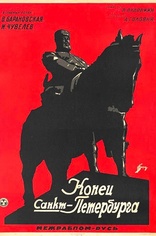
Price
Movie rating
6.7 | / 10 |
Blu-ray rating
| Users | 0.0 | |
| Reviewer | 4.0 | |
| Overall | 4.0 |
Overview
The End of St. Petersburg (1927)
A peasant comes to St. Petersburg to find work. He unwittingly helps in the arrest of an old village friend who is now a labor leader. The unemployed peasant is also arrested and sent to fight in World War I. After three years, he returns ready for revolution.
Starring: Aleksandr Chistyakov, Vera Baranovskaya, Ivan Chuvelyov, V. Obolensky, Sergey KomarovDirector: Vsevolod Pudovkin
| Foreign | Uncertain |
| Drama | Uncertain |
Specifications
Video
Video codec: MPEG-4 AVC
Video resolution: 1080p
Aspect ratio: 1.33:1
Original aspect ratio: 1.33:1
Audio
English: DTS-HD Master Audio 2.0
Subtitles
English
Discs
Blu-ray Disc
Single disc (1 BD)
Playback
Region A (B, C untested)
Review
Rating summary
| Movie | 4.5 | |
| Video | 4.0 | |
| Audio | 3.0 | |
| Extras | 3.5 | |
| Overall | 4.0 |
The End of St. Petersburg Blu-ray Movie Review
A masterpiece of editing that film students should consider essential viewing
Reviewed by Neil Lumbard April 4, 2020The second feature-film in the trilogy is the brilliant masterpiece The End of St. Petersburg. The best film in the trilogy, the remarkable craftsmanship of the filmmaking is cutting-edge and far edgier to experience than one would expect for a film produced in 1927. The story explores the revolution in Soviet Russia with emphasis on ordinary people working through harsh factory conditions. There is certainly a layered and philosophical undercurrent to the imagery.
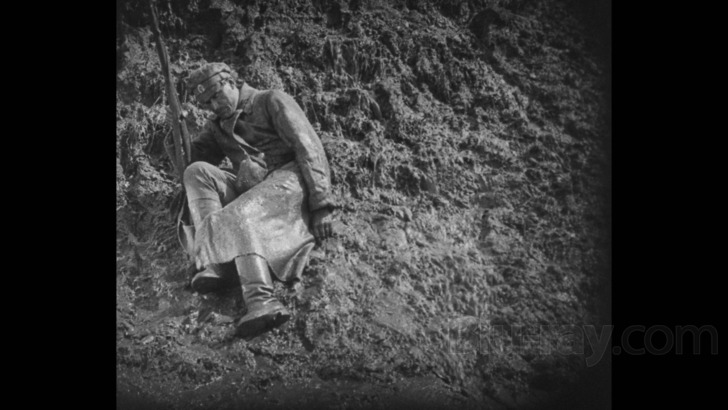
A revolution in cinema.
The End of St. Petersburg evokes strong emotions while being edited to perfection. The editing, in some ways, is the real star of the filmmaking. While the direction is downright fierce it is clearly the rapid-fire editing that makes the images so surrealist and mesmerizing to watch unfold. The score composed by Vladimir Yurovsky is simply magnetic and elevates the material. An impressive silent feature which is worthy of study and appreciation by cinema students and enthusiasts.
The End of St. Petersburg Blu-ray Movie, Video Quality 
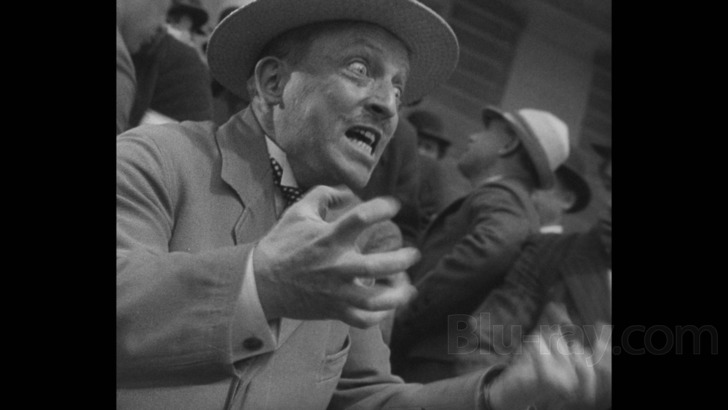
The Bolshevik Trilogy: Three Films by Vsevolod Pudovkin is an expansive collection containing three (surprisingly different) presentations. Each of the three films is presented with a 1080p MPEG-4 AVC encoded high-definition presentation in the original theatrical aspect ratio of 1.33:1 (full frame). The presentation for The End of St. Petersburg is detailed below:
The highlight of the entire Bolshevik Trilogy: Three Films by Vsevolod Pudovkin collection, The End of St. Petersburg has received an impressive presentation that is worth the cost of admission with this set alone. The transfer has excellent clarity throughout the entire film. The black and white photography shines throughout and there are many scenes which are truly marvelous to watch unfold in high-definition.
Though the scan does feature some thin scratches and minor print damage on occasion, the bulk of the high-definition presentation is highly satisfactory given the age of the elements at play. The stunning visuals often mesmerize. Fans of the film will be pleased.
The End of St. Petersburg Blu-ray Movie, Audio Quality 
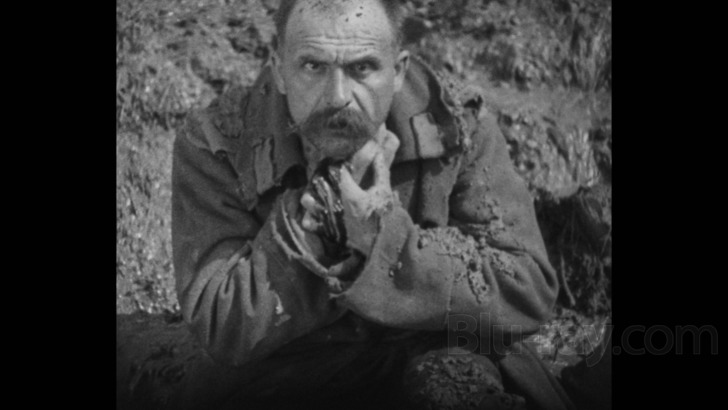
Presented with a lossless DTS-HD Master Audio 2.0 track, The End of St. Petersburg is the weakest sounding of the three feature-film presentations. (Surprising given that the video-transfer was the best of the bunch). The audio is still reasonable and satisfactory. There is a thin degree of hiss which is detectable on the audio track (especially if one is highly discerning) but it is something most viewers of the film will not find too distracting. Music is still pleasant sounding and the score is one of the highlights of the experience.
Please Note: Optional English subtitles are included for the intertitles.
The End of St. Petersburg Blu-ray Movie, Special Features and Extras 
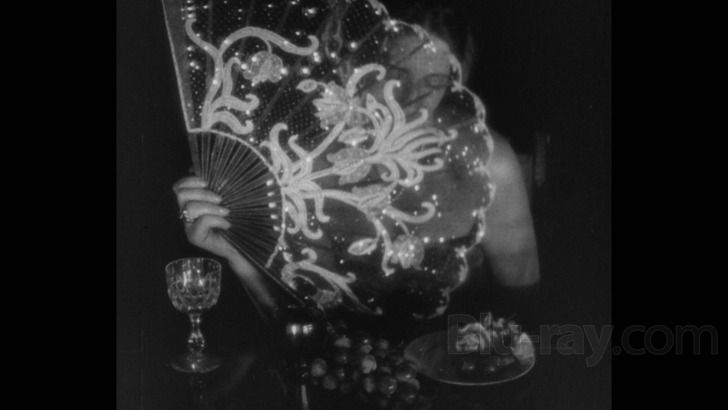
Amateur Images of St. Petersburg (HD, 1:33) showcases classic film reels from the land of St. Petersburg. Despite what the title of the supplement implies, this is not simply a slide-show of photographic images. Rather, the short reels showcase the city in motion.
Notebooks of a Tourist Present: St. Petersburg (c. 1920) (HD, 1:44) is a short but impressive video which showcases the landscape surrounding the area. One could almost think of it as an early travel video highlighting some of the destinations.
A Revolution in Five Movies (HD, 9:18) is a compelling visual essay created by filmmaker Maxim Pozdorovkin. The short showcases the five editing techniques explored in the Bolshevik revolution. During the visual essay, the following techniques are explored:
-
Hunger (Leit-Motif)
-
Inequality (Symbolism)
-
Abuse (Contrast)
-
Profiteering (Parallelism)
-
Shortages (Simultaneity)
The End of St. Petersburg Blu-ray Movie, Overall Score and Recommendation 
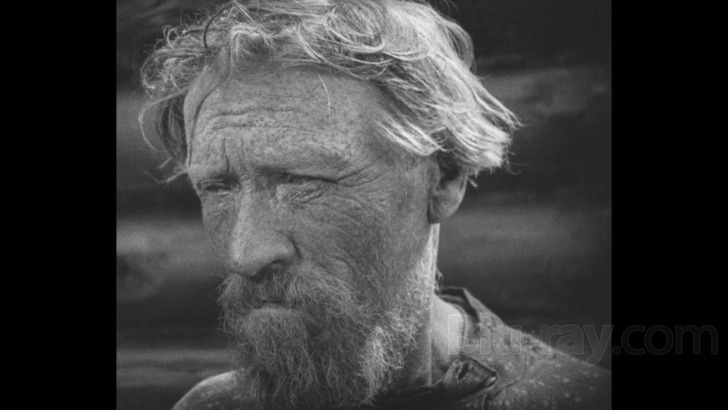
The best film in the stirring Bolshevik Trilogy is undoubtedly this remarkable gem. The End of St. Petersburg is so fast-paced one could almost mistake it's editing for a cutting-edge music-video. Footage is so expertly sliced together that the narrative strengths are exponentially heightened. Brilliantly edited and well-directed, The End of St. Petersburg is essential early Soviet cinema. Featuring an impressive presentation and a selection of quality extras, the film is worth a look.
Similar titles
Similar titles you might also like
(Still not reliable for this title)

The Rocket
2013

The Flower of Evil
La fleur du mal | 4K Restoration
2003

The Image Book
Le livre d'image
2018

Zama
2017

Goodbye to Language 3D
Adieu au langage
2014

Loveless
Нелюбовь / Nelyubov
2017

Heroic Purgatory
煉獄エロイカ
1970

Christ Stopped at Eboli
Cristo si è fermato a Eboli / Full-Length Version
1979

Cemetery of Splendor
2015

Taxi
2015

Vladimir et Rosa
Vladimir and Rosa
1971

Porcile
1969

Peppermint Candy
박하사탕 | 4K Restoration
1999

The Wild Pear Tree
Ahlat Ağacı
2018

1900
Novecento | Three-Disc Collector's Edition
1976

Tout Va Bien
1972

Horse Money
Cavalo Dinheiro
2014

Things to Come
L'avenir
2016

Blind Chance
Przypadek / Uncensored Version
1987

Here Is Your Life
Här har du ditt liv | Original Cut
1966